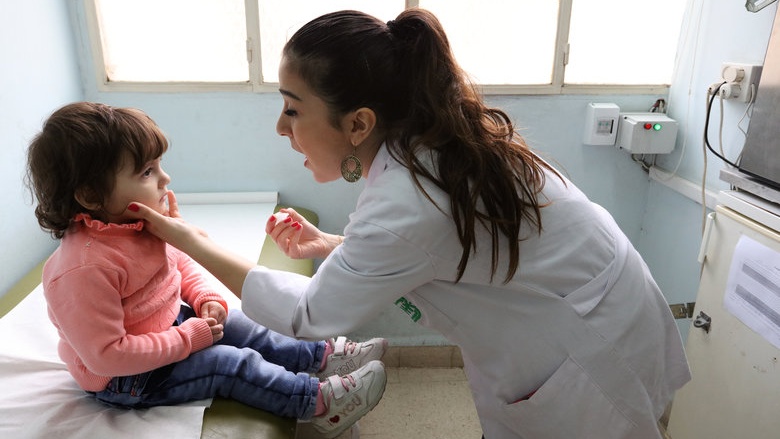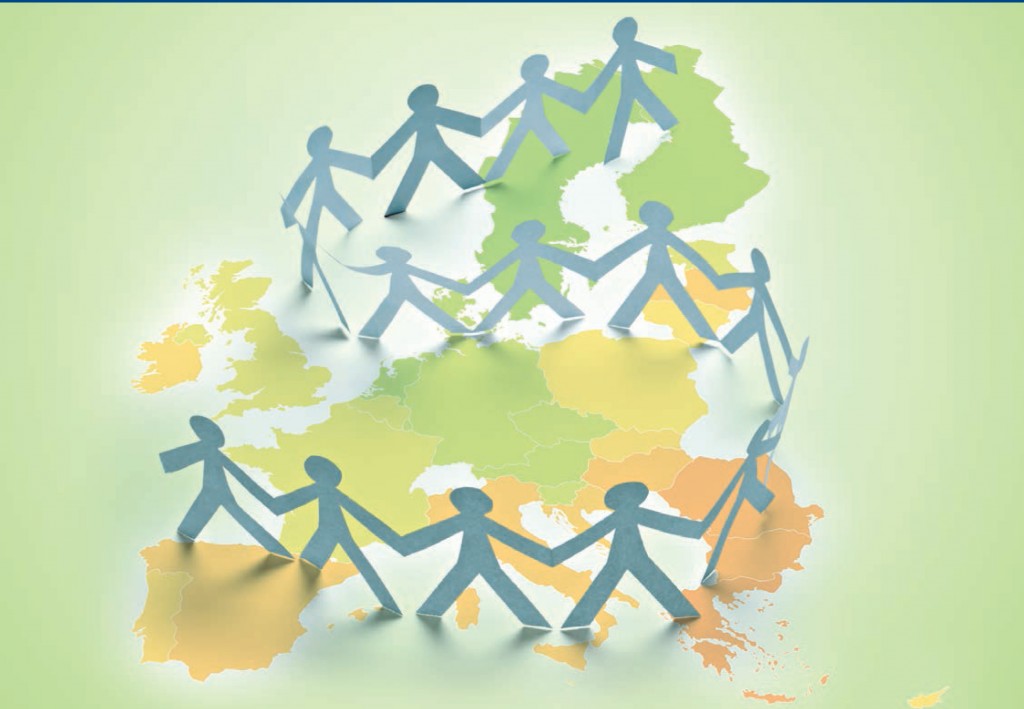Any developed state is distinguished by the fact that it provides its citizens with the observance of a mass of rights and freedoms. Most of them are set forth in special documents that are signed not by one country, but by a whole group of states and should be ratified by them in the future. The main document of Europe in this category is the European Social Charter. To date, it has been ratified by forty-three countries. The Russian Federation also signed the 1996 revised European Social Charter and is currently working on the preparation of ratification of the document. The charter itself is quite interesting and is the foundation on which modern European society is practically built. To imagine the world without it is quite difficult, so we decided to consider it in our article.

Charter: Brief Description of the Document
The European Social Charter is the document that guarantees citizens social and economic rights. It consists of several parts and articles, and the countries signing this agreement may not accept some paragraphs and articles. This is very convenient for states that are just beginning their way to ratify the document and are not ready for all reasons to comply with all its points.
To date, the document reflects thirty-one rights, whose compliance is carefully monitored by the European Council. It is noteworthy that it was he who initiated the creation of this document and still controls its ratification.
History of the Charter
The European Democratic Society is based on two important documents, one of which is the European Social Charter. However, the first agreement of this type was the European Convention, which is responsible for the observance of civil and political rights and freedoms.
The convention appeared around the middle of the last century and was able to illuminate many aspects of the life of European citizens. However, since the development, improvement and observance of legal norms have always been a hallmark of the development of society in Europe, it is not surprising that these points were reflected in this document. Countries that have adopted it must adhere to international legal standards and completely redo their legislation.
Social and economic rights were ignored for some time, because they demanded certain financial costs from governments. But to preserve and increase the welfare of the population, as well as to increase the general standard of living, some kind of regulatory document was required, which became the European Social Charter. Its developers initially wanted to largely duplicate the Convention. However, this was prohibited, and the charter was developed only taking into account social and economic norms.
The document was completely ready for the sixty-first year of the last century, when it was presented to the member states of the Council of Europe. The signing of the document took place in Turin, and it was from that moment that the victorious march around the world of this agreement began. Every year new countries join it, and periodically changes are made to the charter, inspired by modern realities.
In 1996, the European Social Charter underwent the most ambitious changes and it was in this form that it was signed by Russia.

Fundamental rights and freedoms reflected in the charter
We think our readers have already understood that the European agreement is designed to preserve and increase the welfare of every citizen, and therefore affects almost all aspects of life. We would like to list the main questions:
• housing;
• healthcare;
• education;
• employment;
• social protection;
• freedom of movement.
We will disclose these moments in more detail in the following sections of the article.
Housing issues
This topic is always extremely problematic for most states, regardless of their level of economic development. Therefore, the charter could not do without items relating to housing issues.
The states that signed the European agreement should address the problems of the homeless and begin work to reduce their number. Also, programs should be developed and adopted in the country to provide housing for families, depending on their composition and needs.
The charter contains clauses regarding the social type of housing. Moreover, foreigners who have received refugee status must also have equal rights to it. Equality is also reflected in paragraphs on housing affordability. It is built on the basis of the sanitary standards adopted in the state and the cost acceptable to most citizens of the state and its guests.

A few points about healthcare
Briefly, all articles on medicine can be reflected in only three points. The first concerns improving the quality of medical care. Moreover, its main characteristic should be the following indicators:
• availability;
• effectiveness;
• warranty.
The second point is about preventive medicine, in which Europeans see the future. It is necessary to work at the state level to identify serious diseases at the earliest level and to prevent their development. Environmental protection plays an important role in this.
The third paragraph is related to the working conditions of citizens. The state should work to reduce the number of occupational diseases.

Education issues
These points of the charter are very important, since it is education that lays the future foundation of any state today. Therefore, primary and secondary levels should only be free so that everyone can get an education, despite the social status of the family.
Also, in the clauses on education, a ban on the labor activity of adolescents under the age of fifteen is noted. Each of them receives the right to vocational guidance in order to choose a suitable higher educational institution for themselves while still studying. You can enter it only relying on your own knowledge and abilities.
Labor and employment
It is quite difficult for many states to fulfill the points regarding the creation of working conditions for their citizens. These points are very numerous and reflect a large number of diverse points.
For example, the state should guarantee full employment and the ability to earn exactly the work that the person chose. The country needs to establish an equal working day for all, fair wages and create comfortable working conditions for each of the existing specialties.
Workers should have the right to strike, the creation of trade unions and other associations. They are left with the decision to join such organizations.

Social protection
It is difficult to imagine a democratic society where there is no effective social program. Therefore, many points are devoted to social protection issues in the charter.
First of all, they relate to the development of social services, programs and institutions of this type. Every citizen of the country should have some protection from poverty. The system should provide special support to the elderly and the family as a whole.
Freedom of movement: features of the issue
Most often, items related to this group relate to family reunification, simplification of the regime for migrants, issues of obtaining assistance, including medical assistance, by foreigners living in the state.

European Social Charter (1996): Change
New items were introduced into the agreement in the late nineties, and its signing took place in Strasbourg. The revised European Social Charter came into force three years later. However, some countries have ratified the previous version of the charter, while others have come closer to its new version.
The European Social Charter, revised in 1996, began to include new items related to changes in the world more than thirty years after the adoption of its original version. The need came for the announcement of the new rights of citizens. For example, the document includes the rights to protect workers from the ruin of the employer and the right to equal opportunities regardless of family circumstances. An important point was the inclusion in the charter of clauses on protection against sexual harassment. It was ratified by many countries that signed the agreement.

European Social Charter and Russia
The Russian Federation came to the signing of this document only nine years ago. It was then that the Russian representatives considered it acceptable for themselves to agree to the sixty-eight points of this document. However, preparations for the ratification process caused some excitement in society.
The fact is that some points of the European Social Charter in the Russian Federation were not approved by certain segments of the population and prominent public figures. They include representatives of the higher clergy of the Orthodox Church. They are very worried that European-style sex education may be introduced in Russian schools. A similar option is considered not suitable by many parents of current and future students.
Also, a lot of controversy was caused by clauses on juvenile justice, which gives the state enormous rights in relation to minor citizens and their stay in families. Even Patriarch Kirill expressed concern about these points.
Today, active work is underway to prepare for the ratification of this document. In Russia, many legislative acts are brought into line with international norms and standards. In recent years, much attention has been paid to the social protection of the population, which has become the main point of the state’s internal policy.
How is the implementation of the charter monitored?
In conclusion, I would like to say that since the European Charter on Social Rights requires serious financial costs, the implementation of its points must be carefully monitored. This is followed by a special independent commission, which listens to reports on the implementation by countries of the clauses of the agreement twice a year.
Initially, the reports presented are analyzed, during which the current situation in the country is compared with the norms laid down in the charter. Sometimes the commission needs additional data that it has the right to request. Further recommendations are made specifically for each state.
A similar mechanism has already proved its effectiveness and ensured the fulfillment of the obligations undertaken by many signatory countries.
